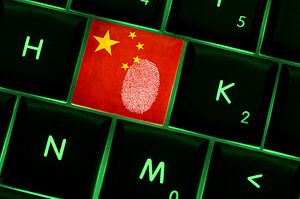In October 2014, China’s National People’s Congress began considering an anti-terror law with strict requirements for technology firms – including language that could force foreign firms to hand over sensitive data, such an encryption keys, to the Chinese government. Nine months later, it seems the bill is back, and on the verge of being passed.
Xinhua reported this week that the Standing Committee of the NPC gave the draft law its third reading during its bimonthly meeting. The committee recommended that the bill be put forward for approval, calling it “quite mature.”
Earlier this year, when the draft anti-terror law was under discussion at the annual session of the NPC, the United States made sure its concerns – and the concerns of the U.S. business community – were heard loud and clear. As Ankit Panda noted at the time, four Cabinet-level officials wrote to the Chinese government to detail their worries about the draft law.
The Obama administration argues that the law places an undue burden on foreign tech companies. The law “would essentially force all foreign companies, including U.S. companies, to turn over to the Chinese government mechanisms where they can snoop and keep track of all the users of those services,” Obama told Reuters in March.
“We have made it very clear to [China] that this is something they are going to have to change if they are to do business with the United States,” he added.
For a while, the steep opposition from Washington seemed to have had an effect, as Beijing delayed the third reading of the draft law. But this week’s movement means the law is back on track to be enacted in the coming weeks or months.
In truth, China never really let go of the idea, which meshes well with its own goals of boosting the domestic tech industry and tightening control over cyberspace. Even though the anti-terror law has yet to take effect, Chinese authorities have reportedly already started asking foreign companies to sign a pledge that they will comply with provisions requiring firms to store Chinese user data on Chinese soil.
With the draft law appearing closer than ever to being adopted, Beijing has started defending it again. A Chinese foreign ministry spokesperson hit back at the criticisms on Wednesday, calling the law “totally justified.”
Hong explained:
China’s draft anti-terrorism law stipulates that teleservice operators and network service providers shall provide technical support such as technical interface and decryption to public and national security organs in their missions to prevent and investigate terrorist activities… This term will not restrict companies’ lawful business, nor will it leave a backdoor open or infringe companies’ intellectual property right and citizens’ freedom of expression online.
Hong added that other countries – including the United States – have laws requiring network operators and service providers to assist in the fight against terrorism.
However, China has a stated goal of weaning itself off foreign technology as soon as possible. Thatmakes it hard not to read the anti-terror law as serving a dual purpose in tightening Beijing’s control over national security while also making life harder for foreign firms (and, of course, insisting that they hand over proprietary information that could be very useful to up-and-coming Chinese competitors).
Another problem is that China’s definition of terrorism is extremely broad, encompassing not only actions but thoughts in an early draft of the anti-terror law. That definition was tweaked in the latest draft, according to Xinhua, but it was expanded rather than limited. The new draft also allows for any “proposition or activity” that threatens personal and property rights to be considered terrorism.
The recent trial of human rights lawyer Pu Zhiqiang for “inciting ethnic hatred” and “picking quarrels and provoking trouble” thanks to microblog posts criticizing government policies in Xinjiang and Tibet doesn’t lend any confidence that Beijing wouldn’t similarly abuse an anti-terror law. Pu was found guilty;and though he escaped prison time after being granted a reprieve, he will not be able to practice law anymore. U.S. firms don’t want to be forced to participate in Chinese anti-terror investigations that become flashpoints for human rights issues — if only because of the bad PR that would bring.

































